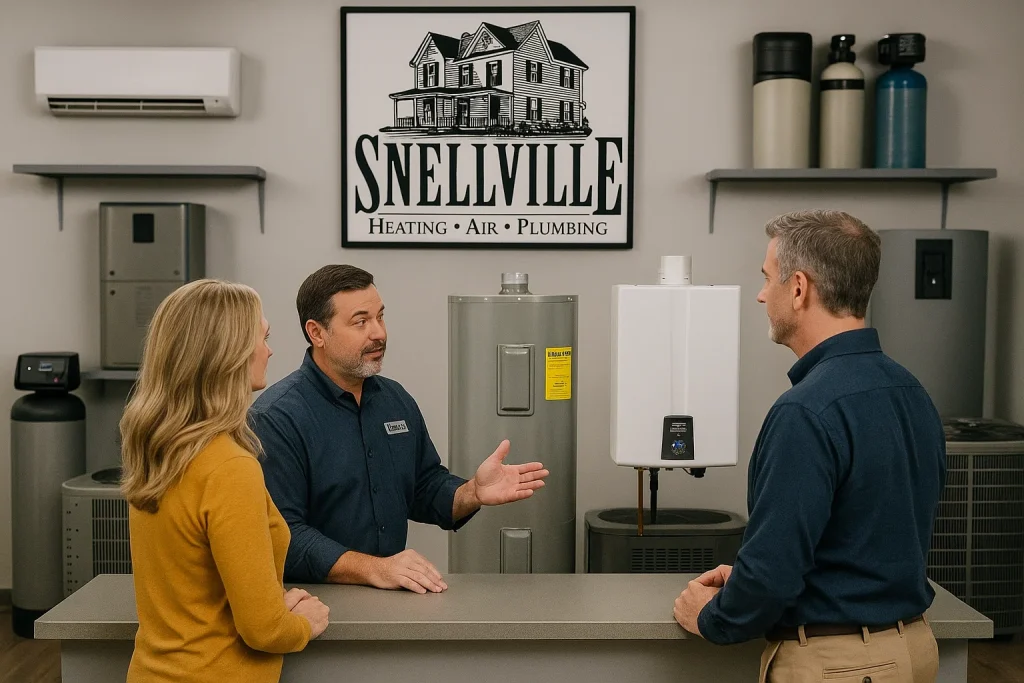Selecting the right water heater for your home is an important decision that impacts your comfort, energy bills, and long-term satisfaction. Each has distinct advantages and considerations, so understanding their differences can help you make the best choice for your household.

Household Size and Hot Water Usage
Tank Water Heaters: Because they store hot water in advance, tank heaters are well suited for families with moderate to high simultaneous hot water needs. For example, multiple showers running close together or running appliances like dishwashers and washing machines at the same time can draw from the stored hot water supply. However, once the stored hot water runs out, you must wait for the tank to refill and heat up again.
Tankless Water Heaters: These provide hot water on demand and don’t run out as long as the system’s flow rate capacity isn’t exceeded. However, a single tankless unit may struggle to supply multiple outlets simultaneously in larger households. For bigger homes, installing multiple units or a higher-capacity model can overcome this limitation.
Energy Efficiency
Tank Water Heaters: These constantly heat and reheat water to maintain temperature, resulting in standby heat loss that can increase energy consumption. Even well-insulated tanks lose some heat, leading to inefficiency.
Tankless Water Heaters: Because they heat water only when needed, tankless models avoid standby heat loss, making them more energy efficient. This efficiency can reduce your utility bills over time, especially in households with lower to moderate hot water use.
Budget and Installation Costs
Tank Water Heaters: Generally, tank systems have a lower upfront cost, making them attractive for homeowners on a budget. Installation tends to be straightforward if replacing an existing tank system, with fewer modifications required to your plumbing or electrical/gas lines.
Tankless Water Heaters: Tankless units typically have higher initial costs, including the unit price and professional installation. Installation can be more complex, especially if your home’s plumbing or gas lines need upgrading to support the higher flow rates and power demands. However, the energy savings over time can offset the initial investment.
Space and Location
Tank Water Heaters: Tanks require significant floor space and must be installed in areas with sufficient clearance for maintenance, such as basements, utility rooms, or garages.
Tankless Water Heaters: Compact and wall-mounted, tankless systems save space and offer flexible installation locations. This is ideal for smaller homes, apartments, or renovations where space is limited.
Lifespan and Maintenance
Tank Water Heaters: Typical lifespan ranges from 10 to 15 years. Tanks can develop leaks over time and may require periodic flushing to remove sediment buildup.
Tankless Water Heaters: These systems often last longer – up to 20 years or more – with proper maintenance.
Making the Right Choice for Your Home
- For larger families or high hot water demand: A traditional tank system or multiple tankless units may be the best option to ensure ample hot water availability.
- For limited space: Tankless water heaters save room and provide flexible installation options.
- For budget-conscious buyers: Tank water heaters have a lower initial cost and simpler installation.
Contact Snellville Heating, Air and Plumbing, where your comfort is OUR business. We’ll set you up right for 2025 with a new and improved water heater.



